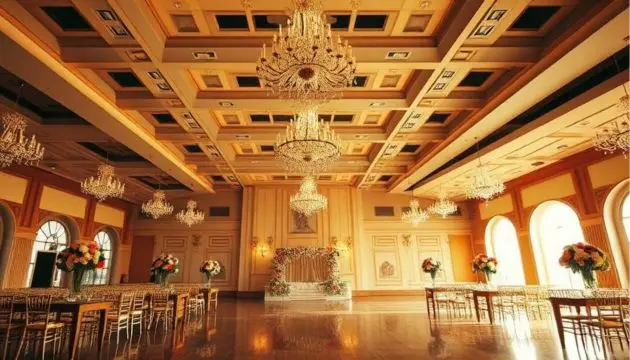KARACHI: The Sindh’s Karachi metropolitan government has decided to introduce new taxes on wedding halls for various services in city, according to a media report.
As per the reports, the Wedding Halls Association submitted a request, and the Karachi city government finalized a plan to issue tax bills for beautification, live cooking, barbecues, and parking at wedding halls.
These taxes will be collected under the Sindh Local Government Act 2013, updated tax rules, and after reviewing staffing, banquet halls, clubs, and ballrooms.
Wedding halls in West, Central, and East districts hosting more than 500 guests will pay a tax of Rs30,000.
Halls hosting 500 guests will pay Rs20,000, those with 300 guests will pay Rs10,000, and halls with 150 guests will pay Rs5,000.
In Korangi and Malir districts, wedding halls hosting over 500 guests will pay Rs25,000 in tax. Halls with 500 guests will pay Rs15,000, those with 300 guests will pay Rs7,500, and halls with 150 guests will pay Rs5,000.
Karachi to impose taxes on wedding halls;
| District | Guest Capacity | Tax Amount (PKR) |
|---|---|---|
| West, Central, East | >500 guests | 30,000 |
| 500 guests | 20,000 | |
| 300 guests | 10,000 | |
| 150 guests | 5,000 | |
| Korangi, Malir | >500 guests | 25,000 |
| 500 guests | 15,000 | |
| 300 guests | 7,500 | |
| 150 guests | 5,000 |
–ALSO READ–
Pakistani mountaineer Sirbaz Khan summits all 14 highest peaks without oxygen
In other city news, K-Electric reported that timely bill payments by customers and efforts to reduce electricity theft have led to several areas in Karachi becoming free from load-shedding.
These areas include Nusrat Bhutto Morh, Manghopir Road, Halari Memon Society, Musalmanan-e-Punjab Society, Kathiawar Society Scheme-33, Saima Villas Super Highway, Chappal Up Town, Nadeem Avenue, VIP View, Ali Residency, Al-Ghafoor Atrium Tower, Saba Imperial, and North Karachi sectors such as 5-C3, 5-C4, and 11-A. Other areas, including Manu Mirani Goth, Shah Latif Town to Gulshan-e-Hadeed, Manghopir, Nusrat Bhutto Colony, Alize Garden, Gulistan-e-Ahmed, Bagh-e-Hassan Colony, Qasimabad, Qasba, Islamia, MPR Colony, Siddiq-e-Abker Mohallah, and Iqbal Goth, have reduced load-shedding by four hours.
This update follows K-Electric’s recent review, which introduced a revised load-shedding schedule effective from May 2025. The previous review was in December 2024.
K-Electric stated that 70% of its network, covering over 2,100 feeders, remains free from load-shedding. The remaining 30% experience load-shedding of 6 to 10 hours, depending on electricity theft and unpaid bills in those areas.
The updated schedule is available on K-Electric’s website, and customers can check updates via the KE Live App or KE’s WhatsApp service.







![Punjab launches Honhar scholarship program for 30k students [check online registration] 6 Honhar scholarship program Punjab for Students](https://islamabad51.com/wp-content/uploads/2024/09/punjab-maryam-nawaz-students-honhar-scholarship-program-120x86.jpg)



